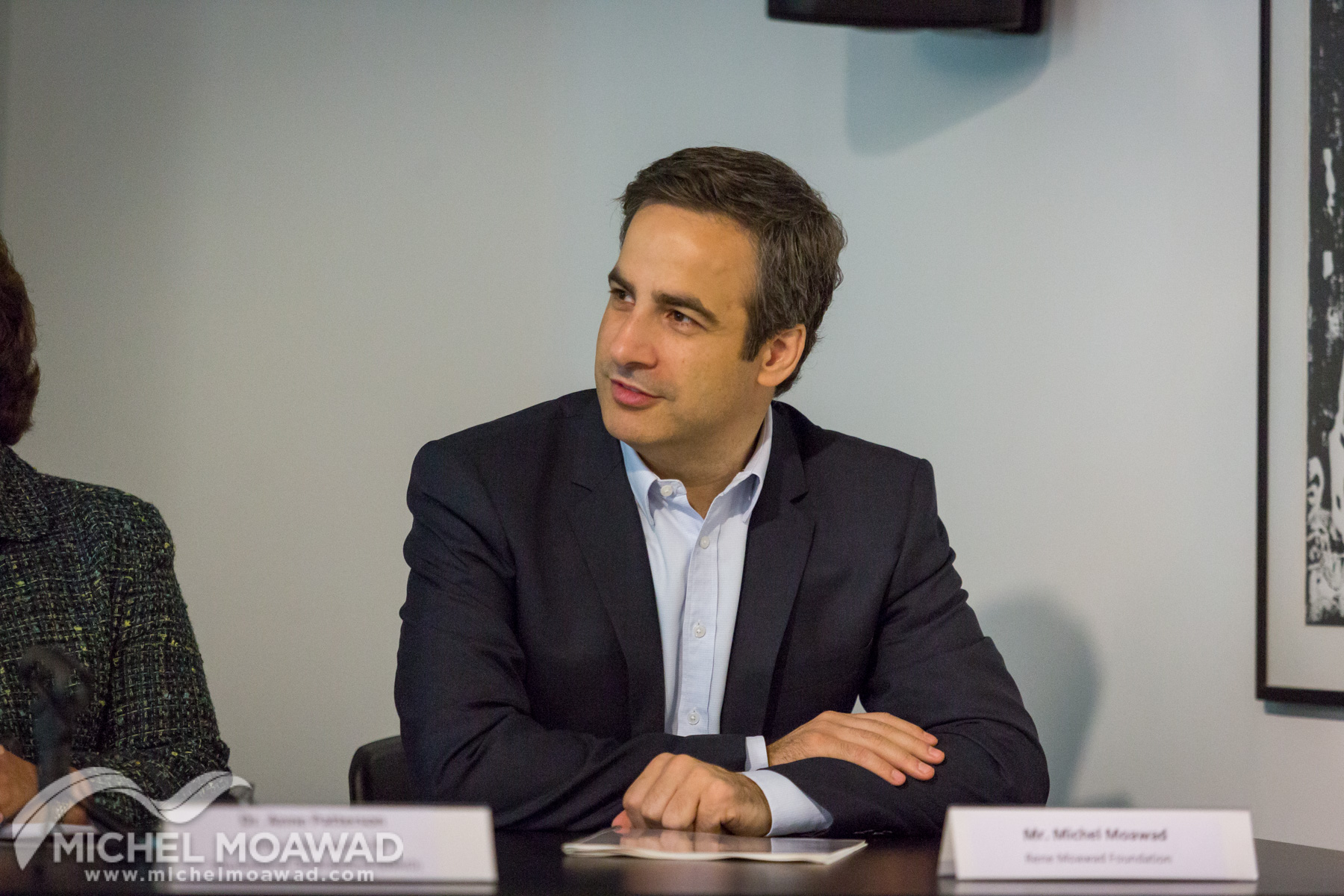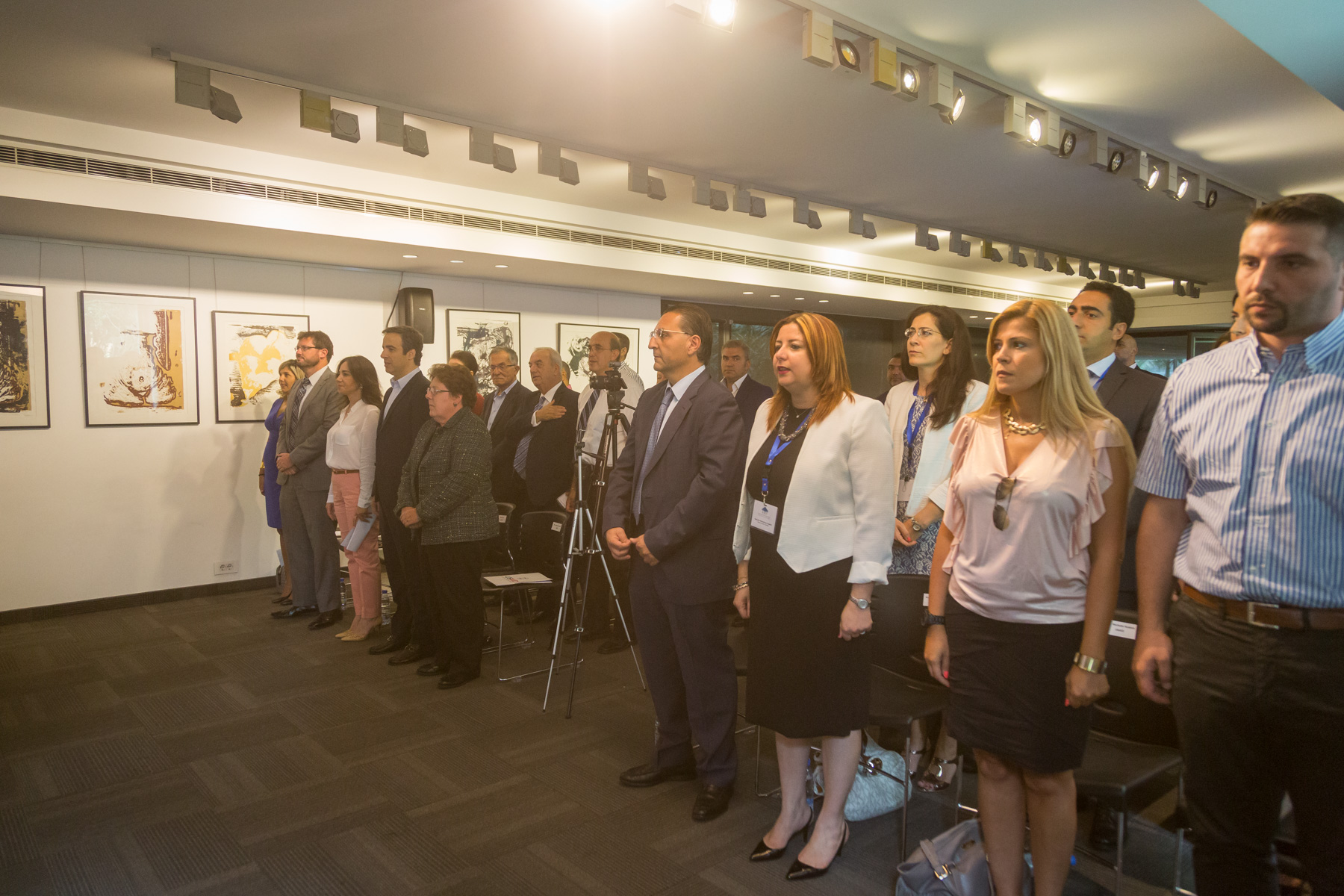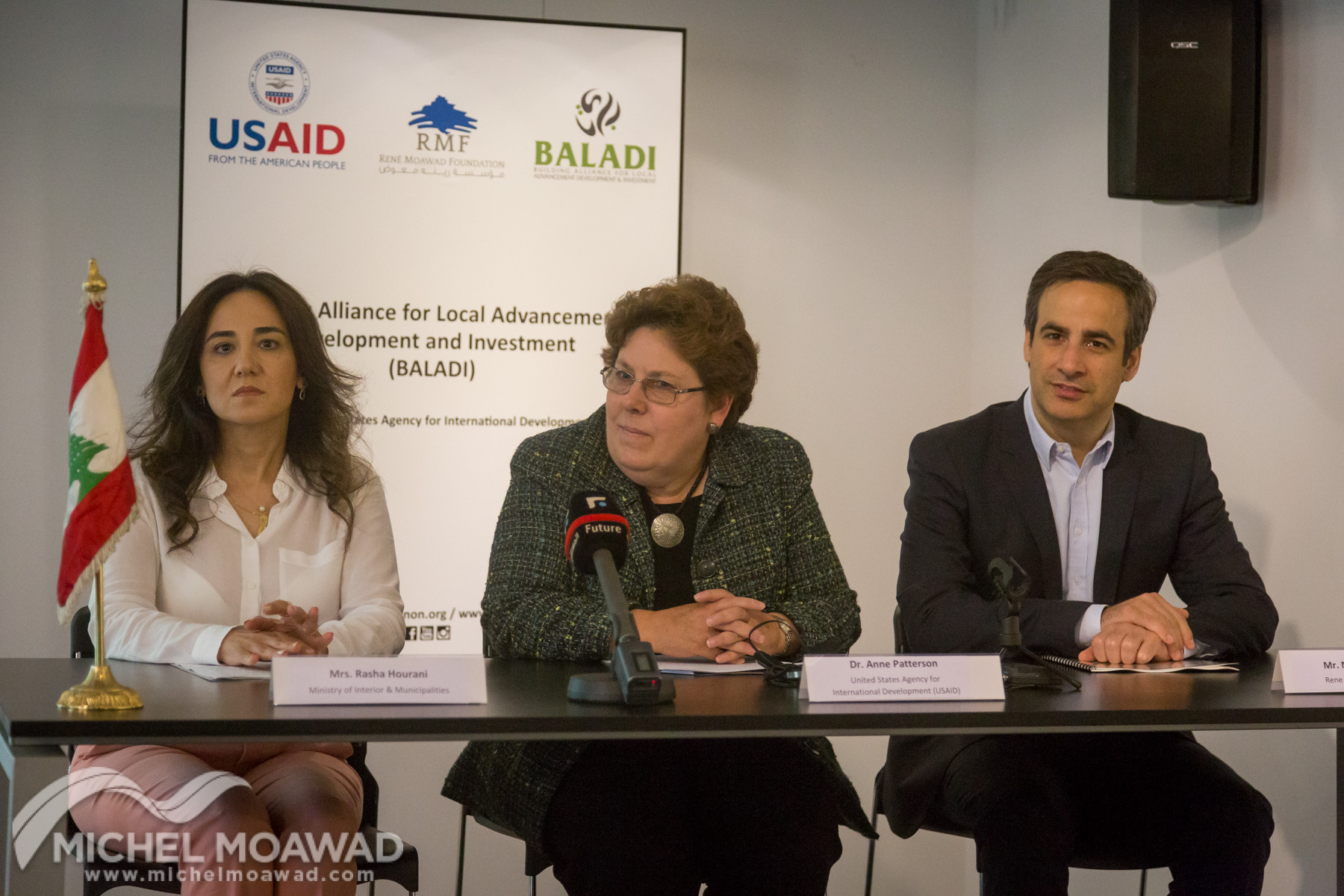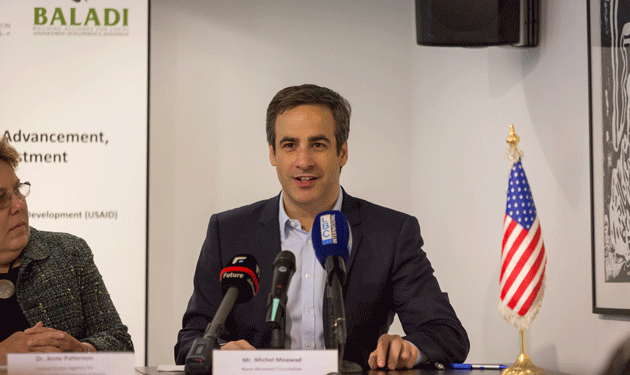Speaking about development in Lebanon, RMF’s Executive Director Michel Moawad stated that it won’t be possible to bring about proper development to the country, unless it is done within a decentralization frame, and with the participation of the local communities and municipalities which are the most qualified to understand the needs of their communities. Moawad also emphasized that development doesn’t necessarily mean spending very large amounts of money, as the projects that have been implemented by RMF in the various parts of the country have proven that reasonably modest projects (compared to the hundreds of millions of USD that are spent pointlessly) can bring real development to the rural areas and towns, and make a change in people’s lives.
Moawad’s words came during the launching of the 3rd call for proposals to support municipal development projects that respond to Lebanese host community needs. This comes as part of the ‘Building Alliance for Local Advancement, Development, and Investment’ (BALADI) program, implemented by RMF and funded by USAID.
The launching took place during a press conference held at the Beirut Symposium in Sin El Fil, in the presence of USAID Lebanon Mission Director Dr. Anne Patterson and Mrs. Racha Hourani representing the Head of the Office of Common Administration at the Ministry of Interior and Municipalities, General Elias Khoury.
The event started with the Lebanese and the United States national anthems, followed by a presentation of the achievements of the 1st and 2nd phases of the BALADI program, and an explanation of the procedures for applying for the 3rd phase.

Moawad
RMF’s Executive Director, Michel Moawad, spoke next. He expressed his feeling of pride for attending this 3rd phase launching event for the BALADI program, for which RMF has become the sole implementation organization today, after the task was initially shared amongst 3 organizations.
Moawad said: “For us BALADI is not just a number of projects executed with various municipalities and civil organizations. It is a model of a successful team-work between: Firstly, international donors institutions like USAID, secondly, NGOs like RMF which have the experience and the capacity for implementation, and thirdly, local authorities: municipalities and civil organizations.
“This cooperation has proven its efficiency in a highly successful way. The proof are the 57 BALADI projects that were implemented all over Lebanon in the 1st and 2nd phases, from the extreme North to the extreme South of the country, with the cooperation of 130 municipalities that worked locally with the civil organizations and the private sector. These projects have benefited more than 100,000 citizens.”
He also highlighted that “The BALADI program has proven that civil organizations and the municipalities are the central tools for local development in their communities, and are the most qualified to implement such projects if they receive the needed support and empowerment.”
Moawad continued: “Proper development in Lebanon, just like in any country, cannot take place outside a decentralization frame. It is also impossible to achieve it successfully without the participation of the local civil organizations and municipalities which are the most qualified to understand the needs of their communities and the people in their areas. In summary, I can say that the model shown to the Lebanese people by the BALADI program is the most efficient to bring real development.”
He explained: “The BALADI program has proven once more that proper development doesn’t necessarily mean big projects or spending very large amounts of money. The projects that have been implemented in the various parts of the country with USAID’s funding, have shown that reasonably modest projects can bring real development to the rural areas and towns and bring about a change in people’s lives (compared to the hundreds of millions of USD that are spent pointlessly, with no benefits reaching the people). This, we have seen and witnessed.
These projects were implemented in the fields of Eco-Tourism, Agriculture Industry, Alternative Energy, infrastructure for farmers, health projects and developing public gardens and green areas. They have changed the lives of people and enhanced the economic cycle. Through similar projects we are actively participating in protecting the Lebanese people’s dignity, and supporting them to remain rooted in their land.”

“BALADI represents also a model for relationships between international groups of people. I, therefore, extend my heartfelt thankfulness to our friends the American people, who have funded this program through USAID. I would also like to thank the municipalities and the civil organizations with whom we worked hand in hand to execute BALADI’s 1st and 2nd phases. I assure you that we will be working with the same enthusiasm and energy for the 3rd phase being launching today. I invite the municipalities to present their applications for the best projects for their areas, so that they get selected, bringing thus substantial changes to their towns.”
Moawad concluded saying: “And of course, I won’t forget to thank the RMF team for all the efforts that they are putting, for the professionalism that they are exhibiting, and for the dedication they are putting to make each project a success. Thank you to you all, may we all continue on this track with more and more projects to serve the Lebanese people.”

Patterson
USAID Mission Director, Dr. Anne Patterson, gave an intervention next. She said: “USAID is proud of the accomplishments of the BALADI program but understands that much remains to be done. Municipalities continue to face financial and human resource challenges due to high and growing demand for services. This is why we have decided to fund a 3rd round of municipal proposals. We hope that the activities funded will enable municipalities and their citizens to work together to address local needs and strengthen communal bonds that are so vital to dealing effectively with social and economic challenges.”
Hourani
In her intervention, Mrs. Racha Hourani representing the Head of the Office of Common Administration at the Ministry of Interior and Municipalities, General Elias Khoury, said: “The BALADI program has proven once again that it has indeed been ‘building alliances’ and working towards ‘local advancement, development and investment’, amidst the huge pressures that all the Lebanese regions are incurring due to the Syrian refugee crisis.” She expressed her thanks to USAID and the BALADI program, asking them to keep introducing similar programs, and she thanked RMF for all the achievements that it is accomplishing and will continue to.”
The BALADI program
Starting from September 2012, BALADI has assisted municipalities to improve public service delivery with a focus on projects that encourage inclusive cooperation with citizens to accomplish shared goals. The BALADI project announced two earlier calls for municipal applications in 2013 and 2015, respectively, and selected 57 projects for grant-based funding, engaging more than 130 municipalities throughout Lebanon. These activities are meeting the needs of host communities by providing back-up electric power through solar energy generation, health services, public school improvement, and other social services. The supported activities will benefit more than 100,000 people by September 2017.
USAID has recently extended the BALADI project through September 2018 in response to the continuing needs of host communities and vulnerable areas in Lebanon, particularly in light of the ongoing Syrian refugee crisis. The BALADI project, through the Rene Moawad Foundation, will support an estimated 11 to 12 new municipal-led local development activities nationwide. BALADI assistance will be considered for projects that primarily require equipment and machinery, can be implemented in four months, and have an immediate and sustainable impact for a significant number of beneficiaries. BALADI grants could reach up to $100,000 for each supported activity. The beneficiary municipality and community are expected to contribute 20% of project costs, in kind or in cash.
Details on BALADI project assistance, selection criteria, orientation sessions for interested applicants, and how municipalities may apply, can be found on the BALADI website: www.baladi-lebanon.org/en.
Proposals must be submitted by August 10, 2017.







 العربية
العربية